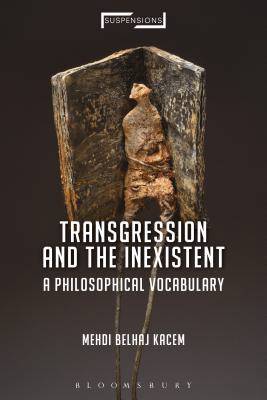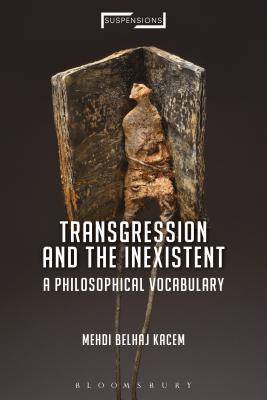
- Afhalen na 1 uur in een winkel met voorraad
- Gratis thuislevering in België vanaf € 30
- Ruim aanbod met 7 miljoen producten
- Afhalen na 1 uur in een winkel met voorraad
- Gratis thuislevering in België vanaf € 30
- Ruim aanbod met 7 miljoen producten
Zoeken
€ 62,95
+ 125 punten
Uitvoering
Omschrijving
A contemporary philosopher of Tunisian origin, Mehdi Belhaj Kacem is here published in English for the first time. His new book, Transgression and the Inexistent: A Philosophical Vocabulary, is a comprehensive foray into Kacem's elaborate philosophical system in twenty-seven discreet chapters, each dedicated to a single concept. In each chapter, he explicates a critical re-thinking of ordinary lived experiences - such as desire, irony, play - or traditional philosophical ideas - such as catharsis, mimesis, techne - in light of 'the spirit of nihilism' that marks the contemporary human condition.
Kacem gained notoriety in the domain of critical theory amid his controversial break with his mentor and leading contemporary philosopher, Alain Badiou. Transgression and the Inexistent lays out the essential concepts of his philosophical system: it is the most complete and synthetic book of his philosophical work, as well as being one of the most provocative in its claims. As a Francophone author engaging with contemporary world thought, he is able to develop novel philosophical perspectives that reach beyond the Middle East or the Continental, and the East/West binary. This is the book's first publication in any language, constituting a much-awaited first translation of Kacem into English.Specificaties
Betrokkenen
- Auteur(s):
- Vertaler(s):
- Uitgeverij:
Inhoud
- Aantal bladzijden:
- 272
- Taal:
- Engels
- Reeks:
Eigenschappen
- Productcode (EAN):
- 9781350021433
- Verschijningsdatum:
- 19/10/2017
- Uitvoering:
- Paperback
- Formaat:
- Trade paperback (VS)
- Afmetingen:
- 156 mm x 234 mm
- Gewicht:
- 376 g

Alleen bij Standaard Boekhandel
+ 125 punten op je klantenkaart van Standaard Boekhandel
Beoordelingen
We publiceren alleen reviews die voldoen aan de voorwaarden voor reviews. Bekijk onze voorwaarden voor reviews.







